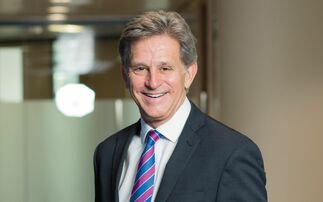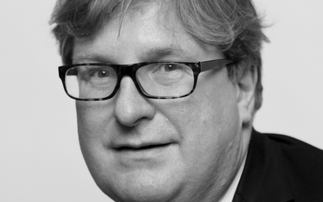
Waverton is a finalist in this year's Fund Manager of the Year Awards in four categories including: £ Strategic Bond, Global Bond, Mixed Investment 20-60% Shares and Mixed Investment 40-85% Shares.
Here, Investment Week hears from Jeff Keen, Head of Fixed Income and Manager of the Waverton Sterling Bond Fund and the Waverton Global Strategic Bond Fund, about the team running the fund, the key to their investment process and how the team negotiated difficult market conditions at the start of 2022.
Can you give a brief overview of the team running the fund and the resources available?
The Waverton bond funds are managed by Jeff Keen and James Carter. Jeff, Head of Fixed Income, joined Waverton in June 2009 to launch the Waverton Sterling Bond Fund and the Waverton Global Strategic Bond Fund. James has been working on both funds with Jeff since joining in March 2018. James' specialism is credit but he participates in all decision making.
The managers have access to a range of external research, across macro and equity, fixed income and alternatives asset classes. In terms of internal resources, the Fixed Income Team is compact, which makes decision making and team discussions dynamic, but they sit within a wider investment team of highly experienced investors (currently 27) with specialisations across asset classes. The collegiate nature of the investment specialists, with global coverage and expertise, enables the team to discuss global themes and provide a soundboard against which they can test investment ideas.
What is key to your investment process on the fund and what are you trying to offer investors?
We think our approach is differentiated in that we are highly active (both top down and bottom up) with a bias towards simply trying to generate attractive returns rather than beat an index. We think this is what our investors are really looking for - a return which is hopefully ahead of key comparators and which can be delivered without excessive volatility. We manage a high conviction portfolio (50-75 issuers) which means we build a good understanding of the companies and issuers we lend money to. We very much prefer to meet or listen to the management present their strategy and discuss their approach to their business and the various challenges they face, including ESG risks. Finally, we are active in utilising derivatives to hedge against tail risks. These help us to deliver on our objective to produce good risk adjusted returns. We are a small team and our fund is modestly sized but these attributes give us the advantages of short lines of communication and the opportunity to be nimble when necessary. These have been important differentiators during the roller coaster of bond markets over the last 3 years in particular.
How did the team negotiate difficult market conditions at the start of 2022 and what is the longer-term impact for the strategy?
We came into 2022 with modest level of duration in recognition of the fact that policy makers were very much behind the curve in terms of controlling inflation. Following the Ukraine invasion we were quick to recognise the dangers of higher input costs on the standard of living of most consumers and started to shift the portfolio away from credit and towards government bonds. Fortunately our credit portfolio was already very conservative in terms of industry exposure but we were cognisant of the dangers of spread duration risk which hit corporate bonds hard in March 2020. During Q2 2022, the portfolio has seen an overall increase in duration, reducing credit duration and increasing government duration. We were also active in investing in credit derivatives to help protect on the downside. The Global Strategic bond fund has limited scope to take short currency positions but was able to generate returns from weakness in Sterling and Euro during a period of US Dollar strength.
Can you highlight a couple of interesting investment opportunities for the fund going forwards? How are you gaining exposure?
Credit selection has been the main driver of outperformance in the fund over the last 3 years and we expect that to continue. We have intensified the fundamental research of our favoured issuers and, with yields having risen significantly in the general credit sell off, we think these bonds can deliver very good returns - even if yield curves remain elevated. The energy transition has been an emerging theme but one which has become a little less crowded in recent months. This provides the scope to invest in exciting projects and some large cap enablers of the zero-carbon energy transition at very attractive yields. Example holdings include well known utility companies such as UK renewables leader SSE plc, but also a few more ‘off-piste' issuers such as FS Agrisolutions. Following significant pledges by governments and companies during COP26, we expect the global energy transition to accelerate in the years ahead, providing significant tailwinds for these first movers and key enablers.
The winners of this year's Fund Manager of the Year Awards will be announced at the in-person award ceremony on 13 July in London. Visit the website for more details: www.fmya.co.uk













